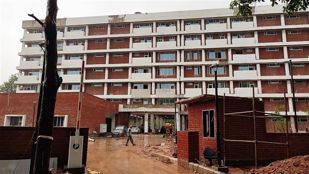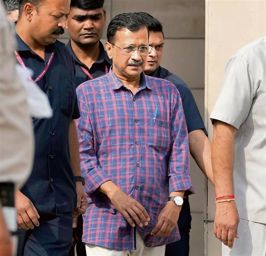Tribune News Service
Chandigarh, September 4
The move of the Chandigarh Administration to impose property tax on residential land, buildings and flats has come under the judicial scanner. Over a month after a notification for levying property tax was issued, the Punjab and Haryana High Court today put the Administration on notice on a petition filed in public interest against the move.
Taking up the matter, the Division Bench of Justice Satish Kumar Mittal and Justice Mahavir Singh Chauhan issued a notice of motion for October 5. In his petition against the Chandigarh Administration, Adviser to the Administrator and other respondents, Ashok Jindal through counsel Avnish Mittal contended that the impugned notification dated July 27 for imposing property tax on residential land, buildings and flats was “ultra vires” or beyond one’s legal power or authority.
Similar notifications issued by other state governments have already been quashed by high courts by following the principles of law laid down by the Supreme Court.
Mittal asserted that the impugned notification could not have been issued by the Adviser without first specifying/notifying the rate of property tax on residential land and buildings and then directing the corporation to assess and impose such tax. Therefore, the impugned notification was illegal, arbitrary and without jurisdiction.
Giving details of the procedure, Mittal said the government was required to issue necessary directions for assessing and collecting property tax within a specified time period and the MC was bound to comply with such directions.
Upon the failure of the corporation, the government could impose property tax.
He contended that the Chandigarh Municipal Corporation was a public body, having councillors as elected representatives. Ever since its inception, it has been working under the municipal laws, bylaws, rules and regulations framed under the relevant Act. However, the elected body has continuously been experiencing interference from the respondent (Administration).
He said the present case was a classical example where the Administration had arbitrarily exercised the powers under the provisions of the Punjab Municipal Corporation “without even consulting the elected representatives, that too without inviting objections and suggestions from any quarter whatsoever”.
Mittal said the Administration and other respondents had been fixing, raising and collecting different taxes from residents. However, property tax was sought to be recovered by arbitrarily exercising powers for the first time in the history of Chandigarh.
It started after a letter dated September 22, 2014, was issued by the Administration directing the corporation to “reconsider and revise its earlier proposal for imposition of the tax on residential land and buildings ”. The general house of the corporation could not reach a consensus. However, the Adviser issued the impugned notification.


























